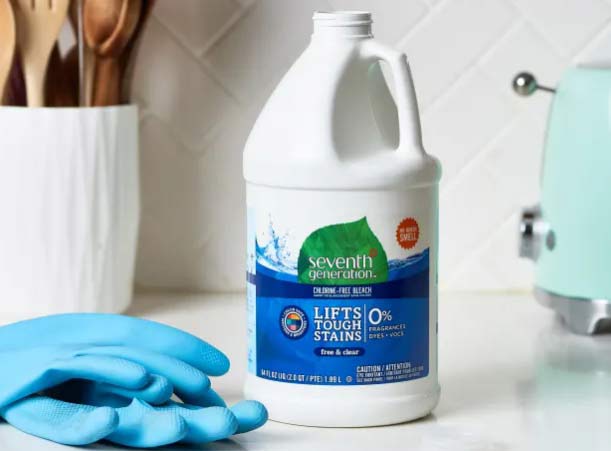You may be surprised to hear that the answer is a resounding no! In fact, bleach products are some of the most effective disinfectants on the market today.
However, it is important to use them safely and according to the manufacturer’s instructions in order to protect yourself and others from potential harm.
Bleach products are commonly used in hospitals and other healthcare settings because they kill germs and bacteria effectively.
In fact, bleach is so powerful that it can even kill some viruses, including influenza and norovirus. However, bleach is ineffective against all viruses, including the common cold and COVID-19.
It is important to remember that bleach products should always be used in well-ventilated areas and with proper personal protective equipment, such as gloves and a face mask.
Bleach products can also be corrosive, so it is important to store them properly and out of reach of children.
Will Bleached Hat/Clothe Cause Skin Problems?
Bleaching your clothes is a great way to keep them looking fresh and new. With a proper use, you can even use bleach products as paint and create new patterns on your hat or cloth. ]
However, you might be wondering if the chemicals in bleach can cause health problems.
In fact, bleach is commonly used in hospitals and other healthcare settings because it effectively kills germs and bacteria.
However, you may wonder if bleach chemicals can cause skin problems.
The answer is no! Bleach does not cause any lasting skin problems, as long as you take proper safety precautions when using it.
However, it is important to avoid contact with bleach if you have open cuts or wounds, as it can cause irritation.
If you do get bleach on your skin, be sure to wash it off immediately with soap and water. You may also want to wear gloves when handling bleached clothes to avoid contact with the chemicals.
What Are Some Other Useful Functions of Bleach Products?
Bleach products have a wide range of uses inside and outside the home.
Some common uses for bleach products include:
– Disinfecting surfaces: Bleach products are often used to clean and disinfect hard surfaces, such as countertops, floors, and toilets.
– Whitening laundry: Adding a small amount of bleach to your laundry can help to brighten whites and remove stains.
– Cleaning mold and mildew: Bleach products can be used to clean mold and mildew from surfaces such as tile and grout.
– Disinfecting swimming pools: Bleach is often added to swimming pools in order to kill bacteria and keep the water clean.
While bleach products are safe and effective when used as directed, it is important to use them carefully to avoid any potential risks.
Be sure to follow the manufacturer’s instructions and always use personal protective equipment when handling bleach products.
Will Bleaching Cause Hair Loss? The Truth Is That…
No scientific evidence supports the claim that bleach detergent causes hair loss. In fact, bleach is often used in medical settings to cleanse and disinfect surfaces.
Bleach is also commonly used in hair salons to lighten hair color. When used correctly, bleach can actually help improve the condition of your hair by
Dr. Anjali Mahto, a consultant dermatologist, says there is no evidence that bleach causes hair loss. “There are reports of contact dermatitis after using diluted bleach solutions on the scalp, but no reports linking use of bleaches to hair loss,” she said.
Dr. Mahto notes that people with pre-existing conditions such as scalp eczema may experience an exacerbation of their symptoms after using bleach, but this is not the same as hair loss.
So if you’re worried about bleaching your hair causing it to fall out, you can rest assured that there’s no evidence to support that claim. However, if you have scalp eczema or another condition that could be aggravated by bleach, you may want to consult with a doctor before using it.
Final Words
Bleach products are safe and effective when used as directed. However, it is important to use them carefully to avoid any potential risks.
Be sure to follow the manufacturer’s instructions and always use personal protective equipment when handling bleach products.
